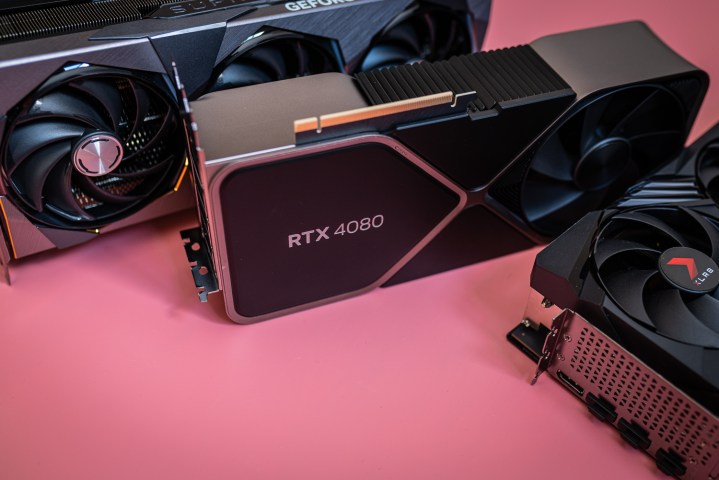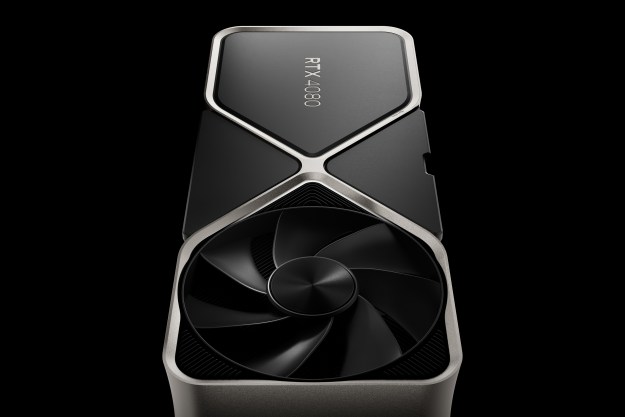Exciting new Nvidia tech is coming to Google Chrome, and on the browser side, the update is ready. We’re talking about Nvidia’s RTX Video Super Resolution (VSR), which is said to support upscaling up to 4K.
However, if you’re itching to try it out, we have some bad news — you can’t use it just yet.
The latest update to Google Chrome, which brings it up to version 110.0.5481.77, is what you’ll need to try out Nvidia’s RTX VSR. The technology is supposed to work in a similar way to Deep Learning Super Sampling (DLSS) and will unlock AI-powered upscaling for Chrome and Microsoft Edge. Initially announced by Nvidia in January, VSR is still fresh, but it certainly sounds promising.
Nvidia shows off the new tech in the video we’ve embedded for you above. RTX VSR boosts the resolution of videos and games that are natively between 360p and 1440p, and the boost is impressive — Nvidia promises to hit up to 4K. To prove the power of VSR, the company showcases some footage from Apex Legends captured at 1080p and then upscaled to 4K, and the results are perfectly crisp, including the moments when the camera zooms in on particular details.
It’s fun to imagine the kind of things VSR could be used for. Nvidia’s own GeForce Now seems like an obvious candidate. On the other hand, upscaling to 4K does seem like something Nvidia might want to lock behind a membership tier instead of offering it for free, so it’s hard to say with any certainty whether GeForce Now will receive the RTX VSR treatment. Similarly, streaming services could benefit from this free update, but will they want to do that when a

As for Google Chrome, the update available right now is just an early stable version, but the official release is set on February 7. VideoCardz dug up some details in the release notes and found a very revealing bit of information: “Enable the NvidiaVpSuperResolution by default.”
While the feature will be available by default in the browser, you will still have to dive into the Nvidia Control Panel to enable it on your end before you can use it. Similarly, you will only be able to try it out if you own one of Nvidia’s best graphics cards — the upscaling tech is restricted to RTX 30-series and RTX 40-series GPUs.
The bad news is that even if you meet all of the requirements, you can’t try out RTX Video Super Resolution yet. While everything is ready on Google’s end, we still need Nvidia to release a driver update that enables the new tech. Fortunately, we can most likely expect it to arrive soon.
Editors' Recommendations
- Why I’m feeling hopeful about Nvidia’s RTX 50-series GPUs
- How to watch Nvidia’s launch of the RTX 4000 Super today
- Nvidia DLSS 3: explaining the AI-driven gaming tech
- Nvidia serves up a free 24% boost in gaming performance
- Nvidia expands DLSS 2 support, but DLSS 3 remains elusive




